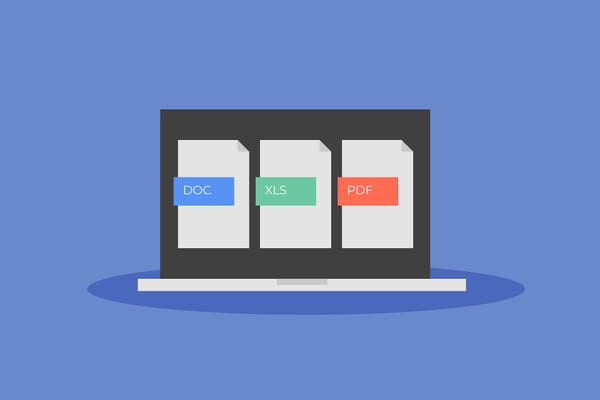HIPAA Compliance and Cybersecurity for Healthcare Providers: A Guide for Small Businesses

Healthcare organizations, whether small practices or large hospitals, operate on the cornerstone of trust, considering they handle sensitive patient information that needs heightened protection.
Solo practitioners and small clinic managers alike are responsible for securing Protected Health Information (PHI) just as much as large hospitals.
In this guide, we aim to explore the intersection of HIPAA compliance and cybersecurity, with a focus on small healthcare businesses and their unique challenges. Despite the range of sizes, HIPAA’s requirements for protecting sensitive patient data are uniform across the board, making robust cybersecurity practices not just advisable but essential.
Understanding HIPAA compliance requirements
HIPAA, short for the Health Insurance Portability and Accountability Act, enforces national standards for ensuring the safekeeping of PHI. HIPAA key provisions include privacy, security, and breach notification rules that apply equally to all covered entities and their business associates.
Core requirements for compliance
- Privacy rule: Limits the use and disclosure of PHI without patient authorization
- Security rule: Involves implementing administrative, physical and technical safeguards to protect electronic PHI (ePHI)
- Breach notification rule: Requires involved entities to notify impacted individuals, the Department of Health and Human Services (HHS), and, if needed, the media, in the event of a data breach
Implications for small businesses in the health sector
Like their larger counterparts, small healthcare providers must meet the above requirements. This can be achieved by creating a culture of compliance, enforcing regular staff training and adopting HIPAA-compliant technical solutions.
Best practices for HIPAA compliance and cybersecurity
Achieving compliance can feel daunting, especially considering that the regulations leave little room for mistakes.
Small businesses are often the most affected in this situation, as they handle the same type of sensitive information but have limited resources to spend on infrastructure and cybersecurity.
However, the following best practices can significantly simplify the process:
- Conduct regular risk assessments: Run routine audits to detect vulnerabilities in your systems and processes. Extensive audits can help evaluate everything from improper access controls to outdated software
- Implement robust access controls: Ensure only authorized personnel can access PHI. Strong access controls include role-based access, multi-factor authentication (MFA), robust password policies and regular password updates
- Data encryption: Encrypting sensitive data can safeguard ePHI during storage and transmission. That way, even if threat actors intercept the data, encryption ensures it remains unreadable without proper decryption keys
- Train your staff: Unfortunately, human error remains one of the most common causes of data breaches. Regular, updated training sessions on recognizing phishing attempts, securely handling patient data and reporting potential security issues are essential
- Use reliable cybersecurity solutions: Dedicated security solutions to protect against malware, ransomware, unauthorized access and other digital intrusions can significantly improve your cyber resilience. Small businesses often benefit from solutions tailored to their needs and budgets.
Bitdefender Ultimate Small Business Security: a tailored solution
Small healthcare businesses often find it challenging to find a cybersecurity solution that balances cost-effectiveness with robust protection. Bitdefender Ultimate Small Business Security encompasses a comprehensive suite of features specifically designed for small organizations, making it an excellent choice for safeguarding patient records and fortifying cyber defenses.
Key features
- Advanced threat detection: Encompasses machine learning and behavioral analysis modules that can detect and deter malware, ransomware, and other digital threats
- Centralized management: Streamlines security administration across devices by providing a centralized management dashboard, ideal for small teams
- Data encryption: Ensures sensitive patient data remains secure in storage and transit by encrypting it, meeting one of HIPAA’s core technical safeguards
- Scalable protection: Easily adapts to the size and complexity of your business, offering flexibility as your operations grow
Bitdefender Ultimate Small Business Security’s emphasis on usability, affordability and robust protection makes it particularly appealing for very small healthcare providers.
Additional strategies for robust cybersecurity
While meeting HIPAA requirements is essential, going beyond compliance can significantly boost your organization’s cyber resilience. Additional strategies can offer proactive measures to strengthen your cyber defenses, ensuring extensive protection for your practice and patient information.
- Backup and recovery plans: Perform regular data backups, preferably off-site, ideally using cold storage (not connected to the Internet) solutions. Perform routine recovery protocol tests to ensure the continuity of operations in the event of a data breach or system failure.
- Monitor for suspicious activity: Use dedicated tools to monitor network traffic and scan for unusual activity. Keep activity logs to perform cross-verifications in the event of a security incident. This can reduce response times and even stop threats before they do harm.
- Partner with experts: Managing cybersecurity independently can feel overwhelming. If that is the case, consider hiring a third-party expert to handle complex security tasks for your organization.
Conclusion
Nowadays, small healthcare providers face similar challenges regarding cybersecurity and HIPAA compliance as larger organizations in the health sector.
By adopting best practices, leveraging appropriate tools, and fostering a culture of security awareness, small healthcare businesses can keep their organization and patients safe while remaining compliant with HIPAA regulations.
Dedicated security solutions like Bitdefender Ultimate Small Business Security offer tailored protection for these businesses without compromising affordability or usability.
Frequently Asked Questions about HIPAA compliance and cybersecurity
- What is HIPAA in cybersecurity?
HIPAA (Health Insurance Portability and Accountability Act) in the context of cybersecurity refers to the regulations and guidelines designed to protect electronic Protected Health Information (ePHI). It sets national standards for safeguarding sensitive patient data from unauthorized access, breaches, and cyber threats through administrative, physical, and technical safeguards.
- What is the HIPAA standard for cybersecurity?
The HIPAA standard for cybersecurity is primarily outlined in the HIPAA Security Rule, which mandates the protection of ePHI. Healthcare organizations must implement access controls, data encryption, audit controls, and routine risk assessments to detect and address system vulnerabilities.
- What is the key to HIPAA compliance?
Maintaining a robust combination of policies, processes, and technologies is key to HIPAA compliance. This includes conducting regular risk assessments, training staff on data security practices, implementing strict access controls, encrypting sensitive data, and staying updated on regulatory requirements to ensure continuous compliance.
tags
Author

Vlad's love for technology and writing created rich soil for his interest in cybersecurity to sprout into a full-on passion. Before becoming a Security Analyst, he covered tech and security topics.
View all postsRight now Top posts
How to Protect Your WhatsApp from Hackers and Scammers – 8 Key Settings and Best Practices
April 03, 2025
Outpacing Cyberthreats: Bitdefender Together with Scuderia Ferrari HP in 2025
March 12, 2025
Streamjacking Scams On YouTube Leverage CS2 Pro Player Championships to Defraud Gamers
February 20, 2025
How to Identify and Protect Yourself from Gaming Laptop Scams
February 11, 2025
FOLLOW US ON SOCIAL MEDIA
You might also like
Bookmarks








